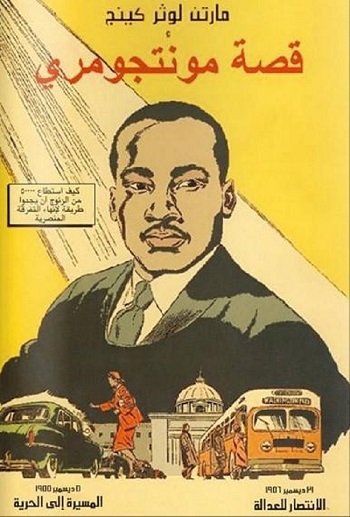 By Hazel Trice Edney (Editor-in-Chief, Trice Edney News Wire)
By Hazel Trice Edney (Editor-in-Chief, Trice Edney News Wire)
WASHINGTON — Freedom! As the word rang across the airwaves last week from the now famous Tahrir “Liberation” Square in Egypt, Americans — especially African-Americans — readily identified with the passion of the Egyptian people.
For those who witnessed their victory after little more than two weeks of protest, words were difficult to find. Yet, empathy was the overwhelming emotion given the experience of the American Civil Rights Movement, during which the struggle was much greater and much longer.
“As Martin Luther King said in celebrating the birth of a new nation in Ghana while trying to perfect his own, ‘There is something in the soul that cries out for freedom.’ Those were the cries that came from Tahrir Square, and the entire world has taken note,” said President Barack Obama on Feb. 11 after the announcement that 30-year Egyptian President Hosni Mubarak had resigned in response to the will of the Egyptian people.
“The word Tahrir means liberation. It is a word that speaks to that something in our souls that cries out for freedom. And forevermore it will remind us of the Egyptian people — of what they did, of the things that they stood for, and how they changed their country, and in doing so changed the world,” Obama said. “Today belongs to the people of Egypt, and the American people are moved by these scenes in Cairo and across Egypt because of who we are as a people and the kind of world that we want our children to grow up in.”
Congratulatory statements were issued from civil rights leaders around the country, including from Martin Luther King III, president of the Martin Luther King, Jr. Center for Nonviolent Social Change.
“I join with people of good will everywhere in saluting the courageous Egyptians who participated in the nonviolent movement which has brought an end to the Mubarak dictatorship,” King said. “Your movement provides an inspiring, visionary example of disciplined nonviolent resistance to oppression, and my prayers and the prayers of people of good will all over the world are with you as you strive to create a vibrant democracy in Egypt.”
Widespread reports actually credited the American Civil Rights Movement, particularly the 13-month 1955-1956 Montgomery, Ala., Bus Boycott, for laying the blueprint for the success in Egypt. One website, Comicsalliance.com, credits a comic book, first published in 1958 by a non-violent advocacy group, the Fellowship of Reconciliation.
According to Time Magazine, The Comic Book, titled, “The Montgomery Story,” was recently translated into Arabic by an Egyptian activist named Dalia Ziada, director of the American Islamic Congress. The book, which tells the story of the stance of heroine Rosa Parks and the leadership of Dr. Martin Luther King Jr., was distributed to thousands as a template for nonviolent protest.
“To promote civil disobedience, Ziada last year translated into Arabic a comic-book history about Martin Luther King Jr. and distributed 2,000 copies from Morocco to Yemen,” said a Time
